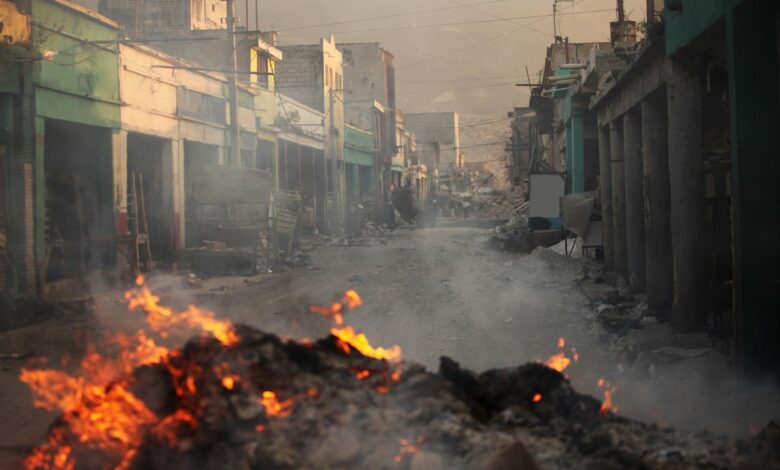‘Climate endgame’: Potential for environmental crisis to end humanity ‘dangerously underexplored’

Despite decades of warnings from the world’s best scientists that soaring greenhouse gas emissions are driving the planet ever closer to catastrophe, the magnitude of the perils ahead remain “dangerously underexplored”, experts have warned.
An international team of researchers led by the University of Cambridge have said that “catastrophic” scenarios could be triggered by global heating worse than many have predicted, or by cascading impacts of events – or both at once.
As a result, they have said the world must start preparing for the possibility of a “climate endgame” for our species.
In order to fully assess the array of risks, the team has proposed a research agenda for facing up to bad-to-worst-case scenarios.
These include outcomes ranging from a loss of 10 per cent of the global population to complete human extinction.
The researchers are calling on the UN’s Intergovernmental Panel on Climate Change (IPCC) to dedicate a future report to “catastrophic climate change”, which they hope will galvanise research and inform the public.
“There are plenty of reasons to believe climate change could become catastrophic, even at modest levels of warming,” said lead author Dr Luke Kemp from Cambridge’s Centre for the Study of Existential Risk.
“Climate change has played a role in every mass extinction event. It has helped fell empires and shaped history. Even the modern world seems adapted to a particular climate niche,” he said.
“Paths to disaster are not limited to the direct impacts of high temperatures, such as extreme weather events. Knock-on effects such as financial crises, conflict, and new disease outbreaks could trigger other calamities, and impede recovery from potential disasters such as nuclear war.”
Dr Kemp and his colleagues have said that the consequences of 3C warming and beyond, and related extreme risks, have been under-examined.
Modelling done by the team shows areas of extreme heat – an annual average temperature of over 29C – could affect two billion people by 2070.
These areas are not only some of the most densely populated but also some of the most politically fragile.
“Average annual temperatures of 29 degrees currently affect around 30 million people in the Sahara and Gulf Coast,” said co-author Chi Xu of Nanjing University.
“By 2070, these temperatures and the social and political consequences will directly affect two nuclear powers, and seven maximum containment laboratories housing the most dangerous pathogens. There is serious potential for disastrous knock-on effects,” he said.
Last year’s IPCC report suggested that if atmospheric carbon dioxide doubles from pre-industrial levels – something the planet is halfway towards – then there is a roughly 18 per cent chance temperatures will rise more than 4.5C.
The research team said the scientific community’s current methodology has a growing tendency to examine less risky future scenarios which require a smaller-scale response.
Dr Kemp co-authored a “text mining” study of existing IPCC reports, published earlier this year, which found that IPCC assessments have shifted away from high-end warming to increasingly focus on lower temperature rises.
This builds on previous work he has done showing that extreme temperature scenarios are “underexplored relative to their likelihood”.
“We know least about the scenarios that matter most,” Dr Kemp said.





